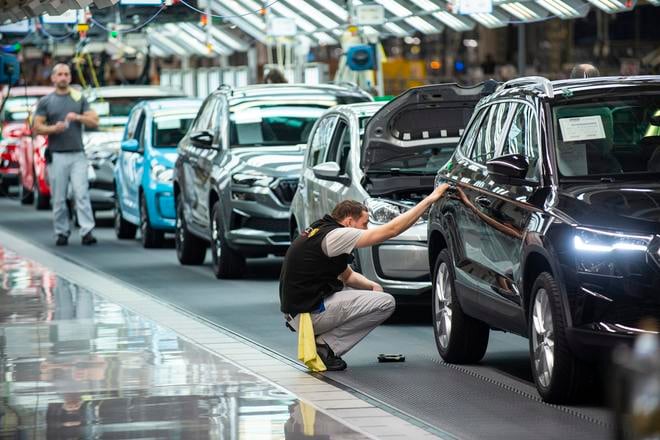Donald Trump’s plans to impose tariffs as the new President of the United States could deliver a blow to Slovakia’s car industry, a key pillar of its economy, CNBC reports.
Slovakia, along with Sweden, is among Europe’s top three exporters of passenger vehicles to the USA, with automotive exports to the USA totalling €4 billion last year. Moreover, Slovakia produces more cars per capita than any other country in the world, making it particularly vulnerable to Trump’s “America First” policies.
“Slovakia has turned into the Detroit of Europe,” Vladimír Vaňo, chief economist at the Bratislava-based think tank Globsec, told CNBC in a phone interview. He referred to Detroit, Michigan—once the heart of the American car industry—which declared bankruptcy in 2013.
On Monday, Trump announced that his administration’s early actions would include new tariffs targeting China, Canada, and Mexico. While Europe was not explicitly mentioned, CNBC suggests it may only be a matter of time before the president sets his sights on the European automotive sector. For Slovakia, such a move would spell trouble, CNBC warns.
Cars account for 74 percent of Slovakia’s exports to the US.
From zero cars to five carmakers
The automotive sector indirectly employs more than 250,000 people.
“In 1990, after the fall of the Iron Curtain, Slovakia produced exactly zero cars,” Vaňo said. “But it was very strong in what we in our local language like to call special manufacturing, which is just a nice way to say arms production—armoured vehicles, tanks, and what have you.”
Slovakia’s potential for manufacturing and engineering attracted major automakers. Over the years, Volkswagen, Peugeot (part of Stellantis), Kia (a Hyundai subsidiary), and Jaguar Land Rover (owned by India’s Tata Motors) established factories in the country. In 2022, Sweden’s Volvo announced plans to become Slovakia’s fifth automaker, with a €1.2 billion investment to build a climate-neutral plant in eastern Slovakia by 2026. The facility will focus exclusively on electric vehicles.
Asked whether Slovakia should be concerned about Trump’s proposed tariffs, Vaňo described the situation as “worrisome.”


